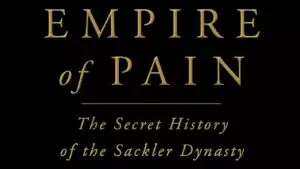By Chris Bickerton

✅ AI Essay Writer ✅ AI Detector ✅ Plagchecker ✅ Paraphraser
✅ Summarizer ✅ Citation Generator
Perry Anderson’s The New Old World is a welcome addition to the many books published in recent years on the European Union (EU). Standing outside of the academic debates, whilst issuing withering critiques of leading academic figures, Anderson’s book is perhaps the most erudite and readable book on the EU to have been published in recent years. More engaged with the theoretical debates than Geert Mak’s magisterial In Europe: Travels through the twentieth century, Anderson retains some of Mak’s fondness for esoteric details and telling anecdotes.
Anderson endorses the commonly held view of the EU as a confusing, obtuse entity, difficult to define and falling outside of most categories of political science. His account aims at providing some explanation of why the EU appears to us in this way. The bottom line for Anderson is the neoliberal turn in the European economy, which has given rise to the minimalistic regime of continental market regulations that makes up the EU. In this respect, the contemporary EU is quite different from its earlier incarnation in the 1950s as a conduit and prop for the development of national welfare states.
Politically, the meaning of the EU is far less clear. Anderson observes that the EU lacks any clear political purpose or identity, because it is a product of consensus rather than antagonism. Political institutions derive their identities from the social contradictions upon which they are based: the nation state in its gaudy nationalist late-19th-century incarnation was a result of the need to overcome the class divisions of capitalist society. The EU, built on the steady dismemberment of the labour movement, rests on no such contradiction. The EU in this respect is not an overcoming of the nation-state, but the slow disintegration of some of its key forms, most notably that of the nation itself. Anderson’s analysis is pertinent to the UK of today: those who believe that out of a newfound preference for compromise, British politics is entering into an era of ‘new politics’, should think again. Compromise alone is generative of little other than an agreement on the lowest common denominator. Novelty and political creativity are the cousins of political division and antagonism.
Anderson’s account of the EU is at its strongest when he shows how it excludes the possibility of any of kind of politics at all. He remarks that though the EU appears in many respects to function as a forum for managing the relations between independent sovereign states, even here we are witnessing something different from traditional diplomacy. After all, diplomacy—with its backroom bargains and Kissingerian grand strategies—was no stranger to conflict. The EU, in contrast, operates in a manner in which even diplomacy itself has been painted with a consensual brush. As a French foreign minister remarked in a speech to Polish ambassadors in 2008, European integration is about ‘the necessary compromise’: a revealing phrase that accurately describes the manner in which the EU’s consensus-based politics operates against a political horizon of necessary agreement. Something the Irish people were introduced to when their renegade decision on the Lisbon Treaty was calmly re-presented to them with the message that on this issue, there was no alternative to consensus.
Where Anderson’s book disappoints is in its disjointed presentation of its material: chapters are self-contained analyses without a sense that the whole is more than a sum of its parts. The reviews of the literature are valuable as insightful criticisms of individual writings on the EU—his critique of the work of Andrew Moravcsik, Giandomenico Majone, and Neil Fligstein are superb and full of wit—but taken altogether, leave the reader without a clear sense of what Anderson’s own theory or account of European integration might be. Beyond his moderated Marxism, where class conflict lurks in the shadows but fails to ignite his analysis in any determinate way, Anderson’s own views have to be gleaned from his multiple critiques of other writers. His chapters on Germany, France, Italy, Turkey, and Cyprus are essential for anyone interested in the development of national politics in Europe; his chapters on theories of European integration a much-needed corrective to the attempts at revising democratic theory to make it compatible with the EU’s anti-democratic practices; and his account of the origins of the EU a useful integration of the competing historical interpretations. But as a whole, we are left wondering whether a theory of the European Union is at all possible.
————————–
Written under a Creative Commons License, with edits: https://creativecommons.org/licenses/by/1.0/
Follow us on Reddit for more insights and updates.





Comments (0)
Welcome to A*Help comments!
We’re all about debate and discussion at A*Help.
We value the diverse opinions of users, so you may find points of view that you don’t agree with. And that’s cool. However, there are certain things we’re not OK with: attempts to manipulate our data in any way, for example, or the posting of discriminative, offensive, hateful, or disparaging material.